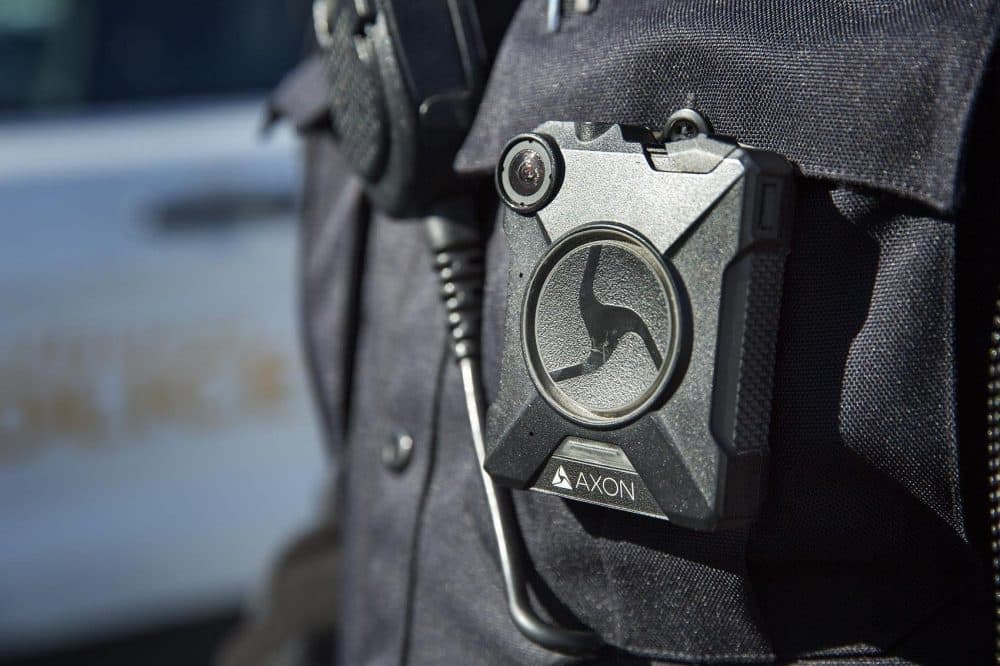Advertisement
Body Cams Made Police And Civilian Interactions 'More Civil,' Northeastern Researcher Says
Resume
The city of Boston announced Thursday it will officially roll out a police body camera program.
The decision comes the same day researchers at Northeastern University released their final report examining the Boston Police Department's year-long body camera pilot program.
Jack McDevitt, one of the study's lead researchers, directs Northeastern's Institute on Race and Justice. He said the study showed body cameras changed police interactions with citizens. He joined WBUR's All Things Considered to discuss the study.
Interview Highlights
On body cameras and 'more civil' police and community interactions
Jack McDevitt: "What this pilot program leads us to believe is it makes interactions between police and the community more civil. And we also looked at those cameras that were used in court. And this was something new that hadn't been looked at very much across the country. And we interviewed both prosecutors as well as defense attorneys, and they both felt that in those cases where they had video, they got a more just resolution to the case. As opposed to arguing about who's to be believed in court, having a video can sometimes make that argument moot. You just watch the video and see what happened.
On what 'cautionary notes' were seen in the study
"Well, I think that the one caution is that we really have to pay attention to privacy as we roll this out. There are people who will be on the cameras who have no involvement in that particular interaction. They could be family members, they could be somebody walking by a street encounter. You have to be real careful to have a policy that protects the privacy of individuals.
"I think also we need to think a little bit more than we have about how those videos will be used in court. You know, you don't have every angle in a camera. You're going to see what the officer is facing, and you may not see something that goes off to the side. You're going to hear the interaction between the officer and the person they're talking to, but not the interaction across the street. So they are videos, but as we all know that's only one slice of what happened."
On why despite their limitations, he feels body cameras still offer greater context
"I think what the mayor envisions over time is that all patrol officers, or officers who are out interacting with the public, would [have] cameras. But I do think that cameras give you more than you would have had without them — even if you don't have them for every piece of an encounter. I think having them is better on balance than not.
"The other thing that's really important is — we've all seen videos of different encounters across different cities across the country, and see how officers either behave well or badly. But what the body camera gives you that the others don't is the audio, and that gives you a lot more context around what was happening during the stop. 'Cause you get to hear the tone of voice of the officer, the tone of voice of the person that's interacting with the officer, The exact statements that are being made. So I think that it helps to give you a better context for understanding how this interaction went down."
This segment aired on August 2, 2018.

